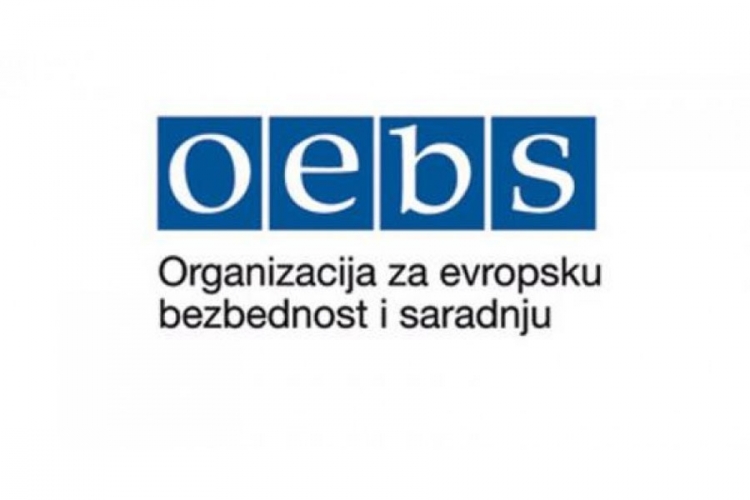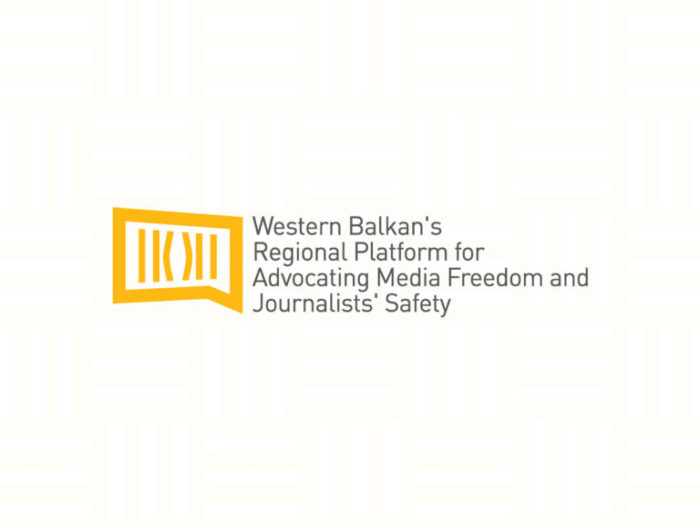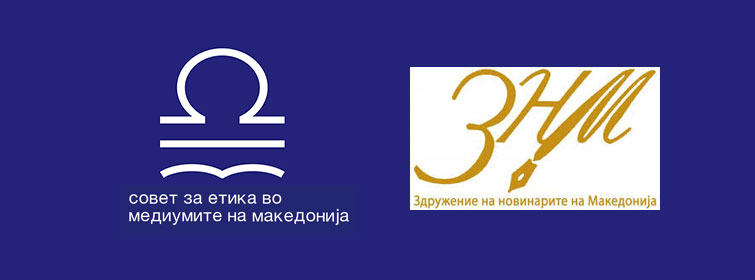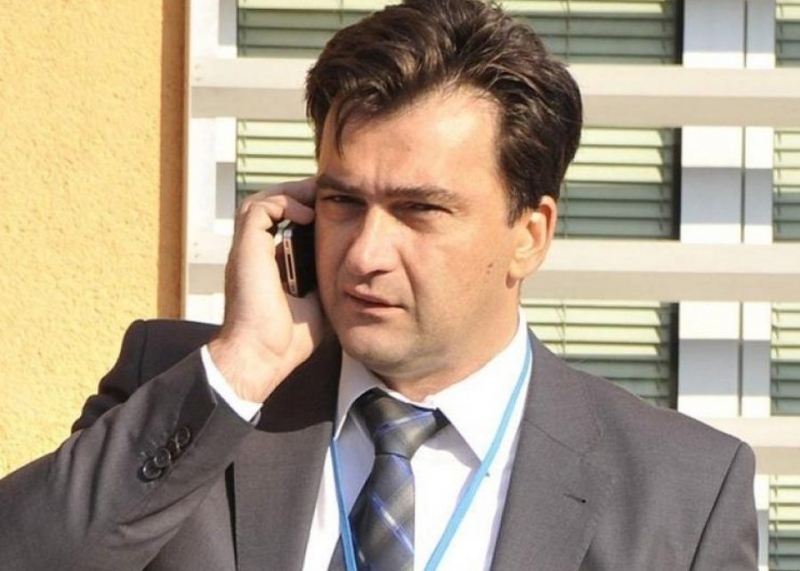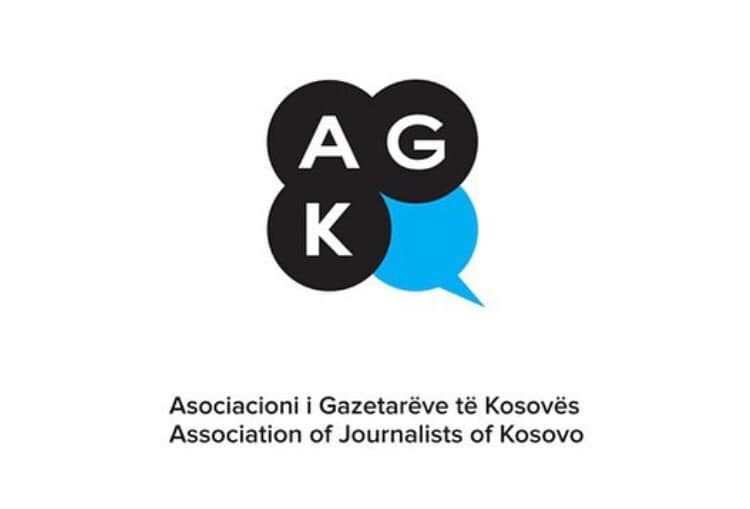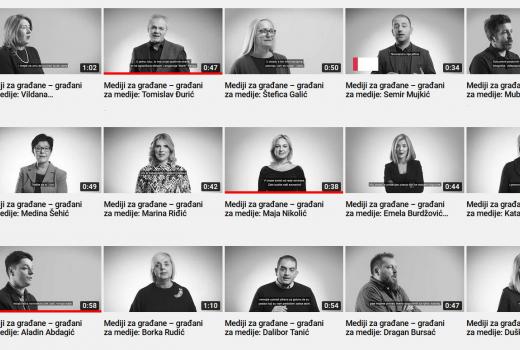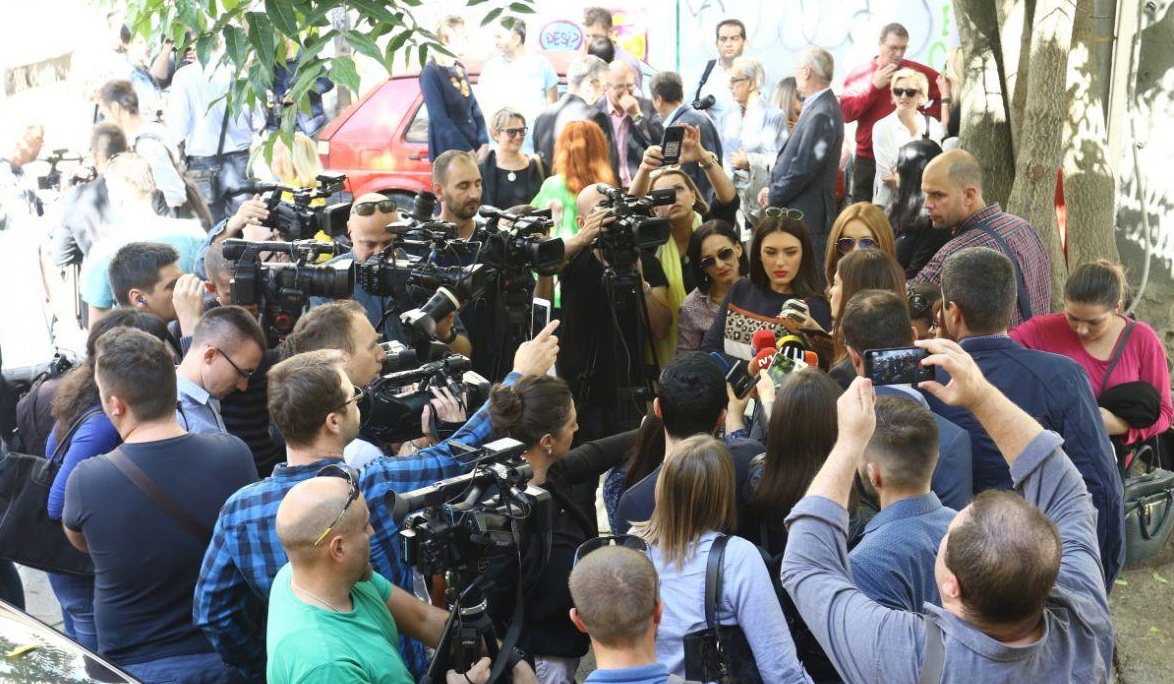By: Brankica Rudan
Sarajevo, 24.01.2020. – Many believe that the state and face of any country is best reflected through media. I personally reckon that if you go to fruits and veggies market in any town and watch the TV of that town; you will surely have the whole picture of that town.
If you do that in Sarajevo, you will meet its very sad side.
Media are frayed and worn out and the market is poor. If we make further analysis why things are just like that, we shall, once again, encounter mostly common and consumed public views claiming that everything bad is “government’s fault”. The state of public consciousness is based on the following premises: no individual can do anything and the general and public responsibility is thus shifted and transferred from one party to another, all based on the “it is their fault” principle!
Television media in BiH not only lack in creativity process; moreover, program contents of TV shows are almost identical on all TV channels in BiH. We therefore have morning programs, daily news, brief news, but also “the most expensive” journalists’ varieties where analysts are invited as TV show guests, including miscellaneous experts, professors, doctors and other which depend on the subject and topic. Journalists are thus provided with filled TV scheme and program and their guests get free media promotion. We have pretty much everything except educational, useful, relaxing, encouraging and motivating program contents.
I remember that my friend (a journalist as well) decided once to watch Central Daily News with mute sound and after having news watched with no sound at all he concluded that TV hosts (people that run the TV news program) seemed very “frowned, angry and appeared as if they had been constantly quarrelling and fighting someone”.
Radio stations, along with dynamics and hosts’ talent, have been competing with each other (depending on taste of their listening audience) on who had better music songs. Radio is also similar to TV in these terms. One could, once in a while, hear some original jingles that would make us laugh and then radio station would keep playing this jingle until it became very boring, so every single being may learn it by heart.
There are no more serious TV talk show programs in BiH media, including humor and funny programs, featuring programs, entertaining shows, educational and school programs as well. What happened to all quizzes that made vast contribution to our common knowledge and skills? All of that is somehow reserved to our neighbors from both, East and West.
Can one say that sitting in the car, turning his camera on and claiming that he had a show is serious media program? Does anyone know to what direction media houses in BiH are heading to and what happened to serious productions? All of these issues left me with no answers expect that some new times have certainly emerged; the times of new declining values.
There is still another side of the coin that can, to some extent and at least tend and attempt to “justify” why journalists work like they do. Budgets are insufficient, working conditions are more or less poor and inadequate, and enthusiasm has decreased due to low wages and salaries and working conditions as well. Hyper productions and quantity therefore appear as a consequence and have their prices. The fight for survival has become more and more apparent and evident, and it is obvious that most of journalists’ professional work is done according to previously received and strict orders, including either political orders or according to the demand of the market, where marketing piece of action that we had been fighting for and that has been provided by our sponsors or friends of the media show that have been feeding us by their investing is crucial for media sustainability and survival.
As a result of all of the above listed issues, interpersonal relationships in most media houses have worsen as well. The other party is always considered as “someone biased or a controlled puppet” and editing offices often have so called “clans. It has become noted and rather common that a male or female colleague (workmate) would often refuse to help or “give a hand” to her/his colleague, justifying her/his actions by claiming that “it is not part of their job description”, which clearly displays a complete absence of team work.
Frequent spinning need for fast and quick information, combined with cheap production, have resulted in electronic and printed media being in a very awkward position with often posting / releasing of faulty, wrong, incorrect and inaccurate information and quotes emerging as final outcomes. This is where we also encounter nonsense because we live in times where every information, provided through modern technology sources, can easily be checked and confirmed, though we must not forget the fact that much information are deliberately and intentionally posted wrong and incorrect, in their quest of attaining media sensationalism. The number of media houses in all fields (printed, electronic or other) that seek sensationalism is on an increase on almost daily basis. Whenever we turn our attention to, people talk about moral and ethics, despite the fact that these two have almost vanished in our reality. Although frankly speaking, there are very few honored exceptions which can still be found in this, rather dark media environment.
The latter does indeed represent the beacons of often victims in terms of assaults and attacks on journalists. General public almost never finds out what happens with assaulters and attackers, since they are not arrested and even if they are, they are set free within very short period of time.
Politicians are often main stars in local media and news are often addressed by one party only, which is followed by reply from the other party, again followed by denial from the first party and then again response from the second party etc. In two or three days, all these quarrels and fights enter the brain area reserved for distant past, because new and new information burst every minute and every second. Generally media is, as a result of professional principle which requires the addressing of the other side, somehow less and less interested in the genuine truth; instead, it is more notably interested in taking care of both sides (preferably in sequels and for as long period of time as possible), leaving thus their listening or viewing audience to make conclusions regarding certain person or venue.
Biggest critics whether one would admit it or not, can be noted on social media sources. Like (click) in our environment is very cheap. This is where we express our opinions, views, stances, stands, share and disperse our emotions, analyze, reply, respond, answer, make comments, like, demonstrate, bring and post filthy stuff in public, share humor and funny photos, make fun, laugh; simply we master the area of social media.
Where is the key that unlocks media and lead them to liberty direction? Actually, we have this key and its name is freedom and courage. We are free only as much as our courage is good enough to fight for media liberties and freedoms.
Let’s hope that 2020 would bring us more courage and better working conditions for the independent media and journalists.
(Author is a journalist at Television Sarajevo; this article was published in bulletin E-journalist)



